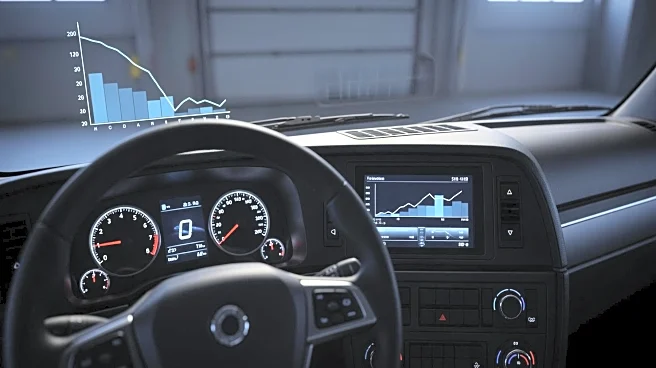What's Happening?
Paccar, a leading truck manufacturer, reported a net income of $590 million for the third quarter of 2025, a decrease from $972.1 million in the same period of 2024. The company's revenues also fell to
$6.67 billion from $8.24 billion year-over-year, with global truck deliveries dropping to 31,900 units from 44,900 units. Despite the decline, Paccar's Chief Executive, Preston Feight, highlighted the strong performance of its brands, Peterbilt, Kenworth, and DAF, as well as the robust results from Paccar Parts and Paccar Financial Services. The company also announced ongoing investments in capital projects and research and development, with significant expenditures planned for 2025 and 2026.
Why It's Important?
The financial results underscore the challenges faced by the trucking industry, including supply chain disruptions and fluctuating demand. Paccar's performance is a bellwether for the broader transportation sector, impacting stakeholders from manufacturers to logistics companies. The company's strategic investments in technology and infrastructure, such as the construction of a battery factory in Mississippi, signal a shift towards sustainable and innovative solutions in the industry. This move could position Paccar as a leader in the transition to electric and hybrid vehicles, influencing market dynamics and competitive strategies.
What's Next?
Paccar projects a stable outlook for the U.S. and Canadian Class 8 truck market, with expected retail sales ranging from 230,000 to 245,000 vehicles in 2025, and a potential increase in 2026. The introduction of new tariffs in November may affect market conditions, but Paccar's domestic production capabilities could mitigate some impacts. The company's continued focus on research and development, alongside its capital investments, suggests a commitment to maintaining its competitive edge and adapting to evolving market demands.









